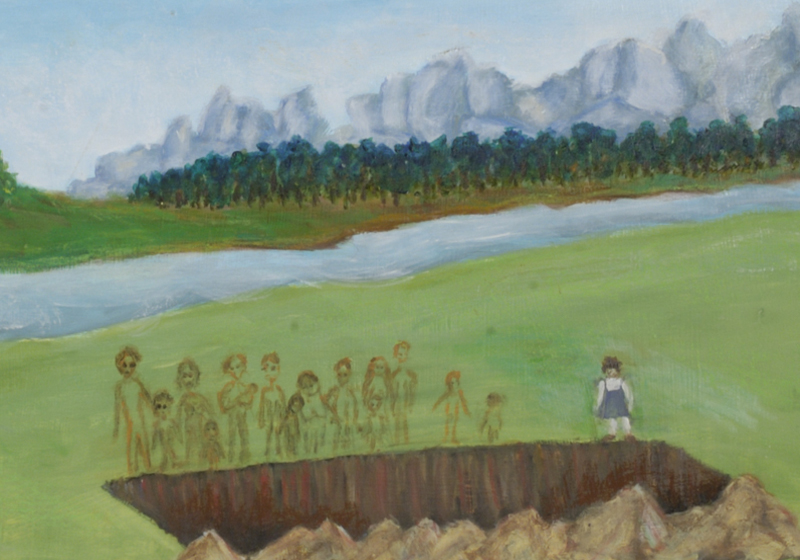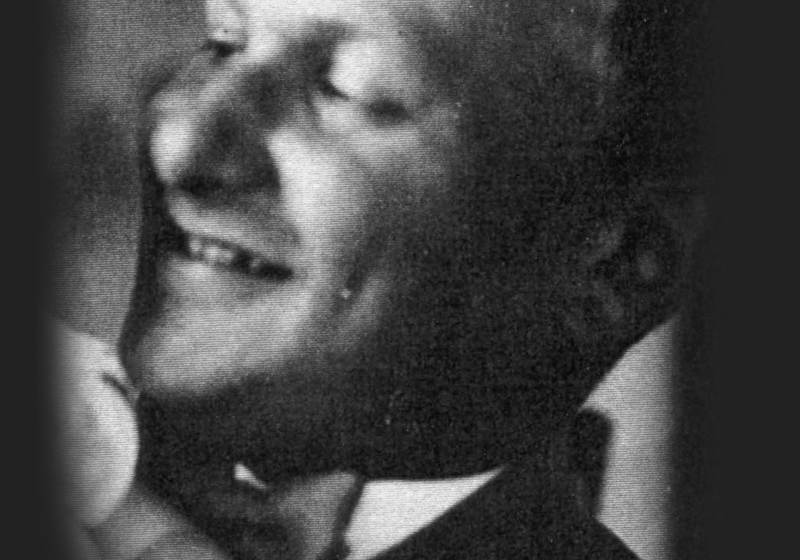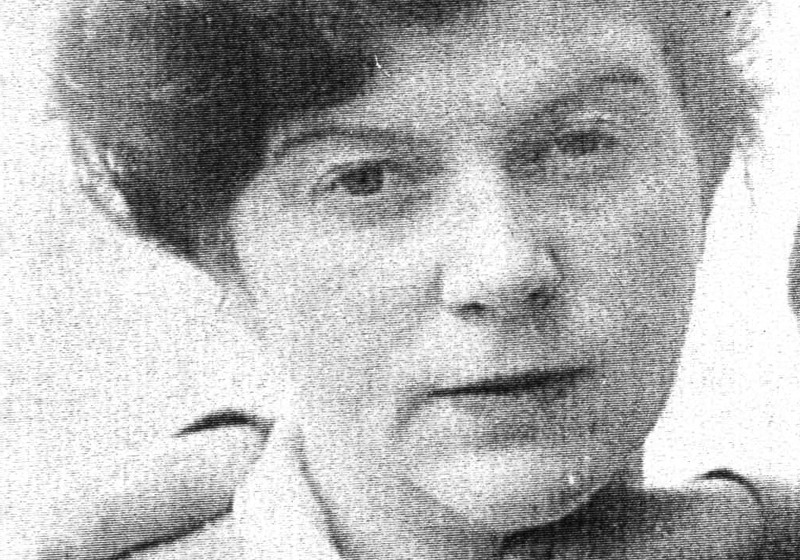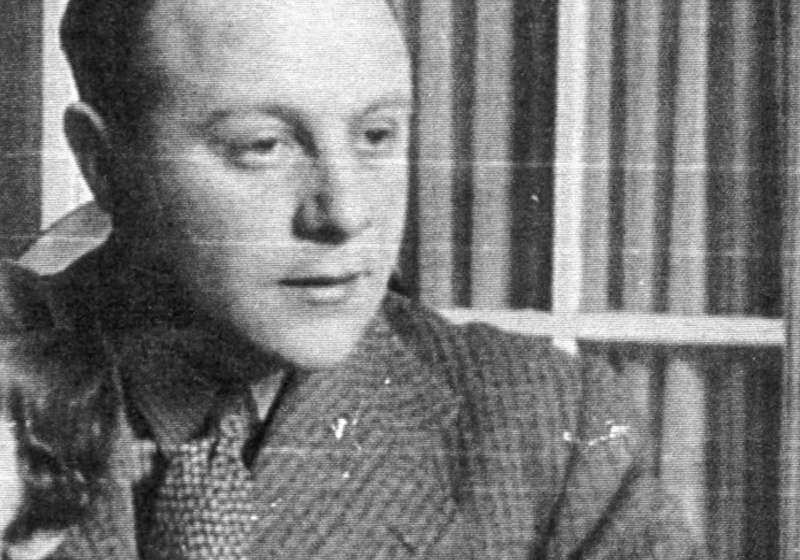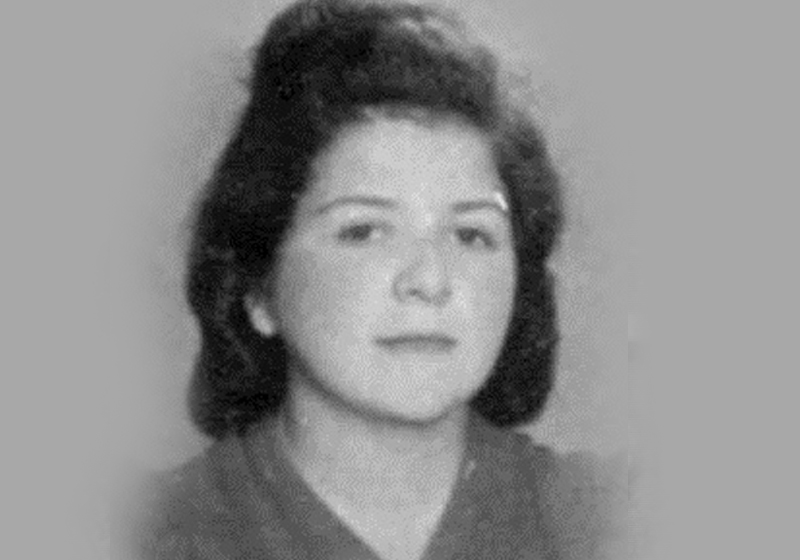The Onset of Mass Murder
The Fate of Jewish Families in 1941
The Tenenbaum Family - Lwów, Poland (today Ukraine)
Halina Tenenbaum was born in 1929 in Lwów, Poland (today Ukraine), the only daughter of Jonasz-Yona and Stephania-Shulamit née Eidelberg. The Eidelbergs were a wealthy family who lost their fortune as a result of World War I, but still owned many properties. Jonasz was a lawyer and played the violin, and the family was well off and maintained a secular lifestyle. In 1933, Jonasz wanted to immigrate to Eretz Israel (Mandatory Palestine), but Stephania was not in favor, and they stayed in Lwów.
On 20 September 1939, the Red Army occupied Lwów. Following the occupation, private ownership of businesses and property was abolished, and most industries were nationalized. Jewish community insitutions were closed, and formal public gatherings were only permitted in the synagogues. School studies were moved over to Soviet curricula, and Jewish political parties and youth movements were disbanded. Two rooms within the Tennenbaums' apartment were seized by the authorities and housed with Russian soldiers. Fearing evacuation to Siberia, Jonasz left the legal profession and started giving violin performances.
On 29 June 1941, German forces entered Lwów, and Jewish persecution began immediately. Thousands of Jews were murdered in the first months of the occupation, and restrictions and decrees were imposed on the city's Jews. Halina's parents searched for a way to save their daughter. During his time at the theatre, Jonasz became acquainted with actress Suzanna Luzhinska, who offered to take his daughter. Posing as Helena Sosnowska, Halina lived with Luzhinska for two years until Lwów was liberated by the Red Army in July 1944. Her mother visited her several times. Recalling their last meeting, Ilana (Halina) said:
My mother came one more time. She brought me a new document, and wanted to bid me farewell. She told me that she wouldn't be able to come anymore, and that I had to stay with Luzhinska and to be a "good girl". I wept, and begged her to take her with me. And then my mother told me that she was very tired… and that she just hopes that I will manage to stay alive and that I won't worry about anything… She added that if I managed to stay alive, I should convert to Christianity and change my name, because it's bad to be a Jew. That is how we parted. Only today can I appreciate her calm manner at the last meeting, how hard she must have tried not to cry with me, and how much she must have cried after she departed.
After the war, Halina found out what had happened to her parents. Her father was caught in one of the Aktions in Lwów, deported to the Janowska camp and murdered. Her mother hid with other Jews in the "Marishinka" cinema in the city. About one month before the liberation of Lwów, they were denounced, the hiding place was discovered, and all those hiding were murdered, including Stephania, Halina's mother.
During her time with Luzhinska, Halina grew comfortable with the Christian faith, and after liberation, she converted to Christianity. She left Luzhinska's home, moved to Lodz and Warsaw, and reached the children's home in Zabrze, Poland. The consolation and strength she had found in Christianity abated. From Zabrze, Halina moved to France with a group of children, and in December 1946, she boarded the "Lanegev" boat bound for Eretz Israel (Mandatory Palestine) with a group of Ma'apilim (illegal immigrants). The boat was intercepted by the British, and the passengers, including Halina, were rerouted to a detention camp in Cyprus. In August 1947, she immigrated to Eretz Israel, reached Kibbutz Ramat Hashofet and changed her name to Ilana. Eventually, she settled in Kibbutz Yechiam.
In 1955, Ilana Ben-Israel submitted Pages of Testimony to Yad Vashem in memory of her parents, Jonasz and Stephania Tenenbaum.

